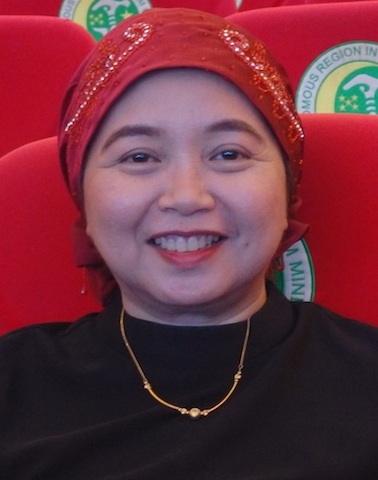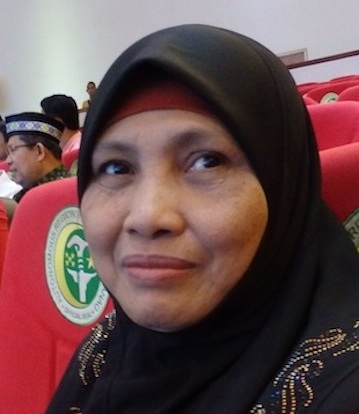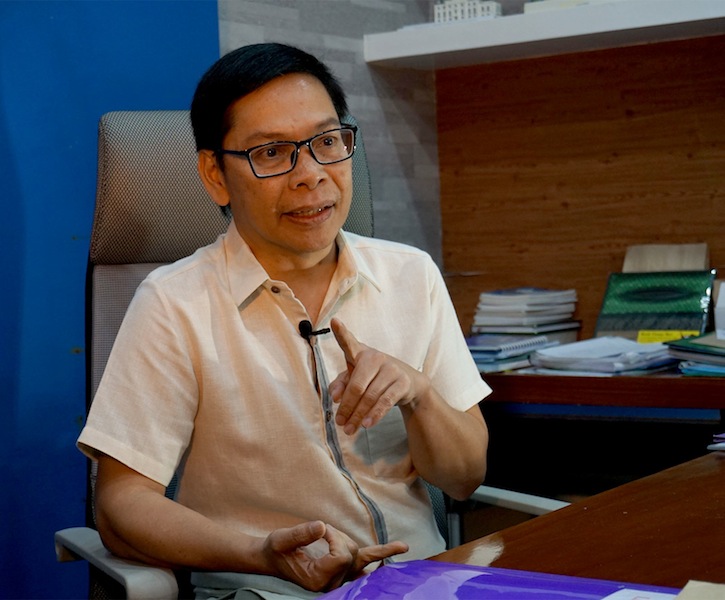The inside mediators are now insiders in the Bangsamoro Autonomous Region in Muslim Mindanao (BARMM), the new autonomous political entity that replaced the nearly three-decade Autonomous Region in Muslim Mindanao (ARMM).
Several members of the Bangsamoro’s Insider Mediators (IMs) have been appointed to key posts in the Bangsamoro Transition Authority (BTA), the body that is governing the Bangsamoro Autonomous Region in Muslim Mindanao (BARMM) during the three-year transition period until 30 June 2022.
Among those appointed by President Rodrigo Duterte to the 80-member BTA are members of the Insider Mediators: lawyers Raissa Jajurie, Jose Lorena, Omar Yasser Crisostomo Sema, Ubaida Pacasem; Engr. Aida Silongan, Datu Mussolini Lidasan, Marjanie Macasalong, Rasul Ismael, Romeo Sema and Adzfar Usman.
Appointed to the Cabinet are Jajurie as Minister for Social Services and Development, Engineer Aida Silongan as Minister for Science and Technology; lawyers Naguib Sinarimbo as Minister for Interior and Local Government. IM members Roslaine Macao-Maniri was appointed OIC Minister for Transportation and Communications while Ross Alonto was named OIC Minister for Trade and Industy.
Also appointed to key positions are IM members Abdullah Cusain as Deputy Executive Secreatary and Dr. Taugan Kikay as Deputy Minister for Agrarian Reform.
Jajurie and Sinarimbo both served in the legal panel during the negotiations that led to the signing of the Comprehensive Agreement on the Bangsamoro (CAB) on March 27, 2014.
 Lawyer Raissa Jajurie, BARMM Minister of Social Services.. MindaNews photo by CAROLYN O. ARGUILLAS
Lawyer Raissa Jajurie, BARMM Minister of Social Services.. MindaNews photo by CAROLYN O. ARGUILLAS
Jajurie was named member of the Bangsamoro Transition Commission (BTC) that drafted the Bangsamoro Basic Law under the Aquino and Duterte administrations while Sinarimbo served in the legal panel of the BTC under the Aquino administration. Under the Duterte administration, Sinarimbo was an adviser to Senate Majority Leader Juan Miguel Zubiri during the Bicameral Conference Committee that finalized and approved what is now Republic Act 11054 or the Organic Law for the BARMM.
Silongan is the lone woman in the Moro Islamic Liberation Front (MILF) Central Committee. She has served the Bangsamoro in several capacities, as Women Sector Representative in the Provincial Political Committee of the MILF in North Cotabato; director of the Bangsamoro Development Agency, lead convener of the Women’s Organization Movement of the Bangsamoro; and Executive Secretary of the National Social Welfare Committee of the MILF.
 Engineer Adia Silongan, BARMM Minister of Science and Technology . MindaNews photo by CAROLYN O. ARGUILLAS
Engineer Adia Silongan, BARMM Minister of Science and Technology . MindaNews photo by CAROLYN O. ARGUILLAS
Silongan worked in government, too. She was Assistant Municipal Planning and Development Coordinator of the municipality of Matalam in North Cotabato in 1986 and from 1987 to 1992, served as Engineer at the National Irrigation Administration’s Alip River Irrigation Project.
Sinarimbo says there are no changes in the IM’s role within the BARMM. “Essentially the role for Insider Mediations will always be really building consensus among those who are inside an organization and those who would probably be out of the organization. Essentially I think the composition of the insider mediation group in the Bangsamoro is perfectly suited for doing the work of mediating and building the consensus because it gives us the perspective of those within the organization and our members who are actually outside of the institutions now, so we have the privilege of looking at the challenges from different angles.”
IM members continue to meet, even informally, to discuss how best they can help in the BARMM, given that the autonomy they had fought for, has now come to fruition, albeit still on its early stages of implementation.
 Lawyer Naguib Sinarimbo. Minister for Interior and Local Government, Bangsamoro Autonomous Region in Muslim Mindanao. MindaNews photo by GREGORIO BUENO
Lawyer Naguib Sinarimbo. Minister for Interior and Local Government, Bangsamoro Autonomous Region in Muslim Mindanao. MindaNews photo by GREGORIO BUENO
Sinarimbo notes that some IM members are in the BTA, some are in the Cabinet, some in middle management, but many are still outside – in universities, in non-government organizations.
As Minister for Interior and Local Government, can he still be part of the IM?
Sinarimbo’s reply: “Yes, definitely. I think the advantage is, those who are inside the major institutions of the government like for instance some colleagues who are in the Parliament, in the BTA, not necessarily members of the Cabinet, would have access to the discussions and the consensus building within the Parliament. Some of us who are in the Cabinet would be there to assist in the consensus-building within the Cabinet and potentially within the bigger Bangsamoro government that includes the Parliament and the Cabinet.”
Unlike Jajurie who is both in the Parliament and in the Cabinet, Sinarimbo is in the Cabinet but not in the Parliament.
“There are some colleagues in the Parliament who are members of the IM and are therefore very open to us who are in the Cabinet to discuss some concerns, same with some of us, so some of us are also engaging some of our colleagues in the Parliament on priority legislations that we feel should really be pushed by the Bangsamoro Transistion Authority or the Parliament in this case,” Sinarimbo added.
Abdullah “Dong” Cusain, BARMM Deputy Executive Secretary looks at the IM “as a group of a progressive-minded individuals, let’s say a mixture of individuals from diverse experience and callings in life” but “the best thing about IM is a forum wherein everyone can freely express his opinion, even if it won’t be palatable to others.”
Cusain says the IM’s role in the new government is “still relevant now as it was before since almost all IMs naman are in one way or the other very much involved in the Bangsamoro cause.”
BTA member Omar Yasser Crisostomo Sema, a lawyer who was nominated by the Moro National Liberation Front (MNLF) in the BTC and in the BTA, says the IMs play a “more important” role now because “even in the BTA, you can see the different interests, the needs of the people that are being represented there. Though we are not elected, a lot of the members of the BTA, especially from those who are nominated by the government, there are different interests. Some of them are members of the political clans, some of them belong to the organization, some of them traditional leaders. So they brought their interests into the BTA.”
Sema says “more important now (are) more mediators … mediation is more relevant given the intertwining conflicting interests so that all laws that we will pass — electoral code, the local government code — will be truly representative of the interests of the people.” (Carolyn O. Arguillas / MindaNews)
